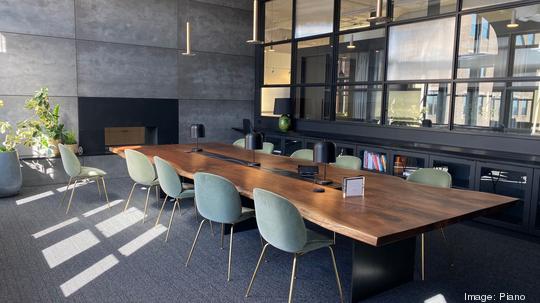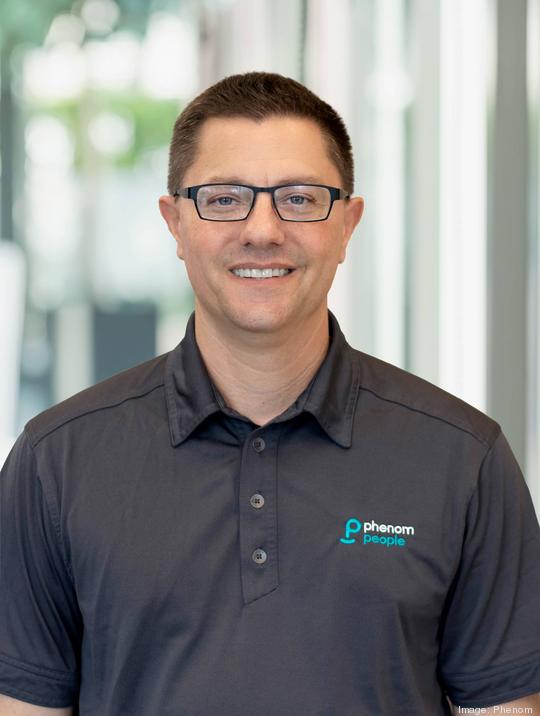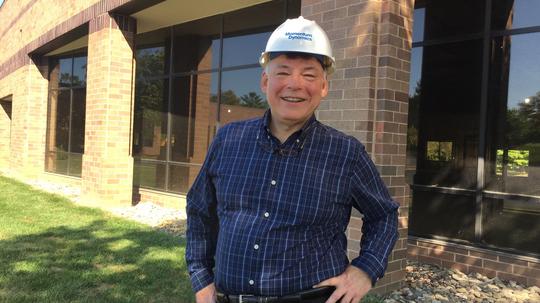
Tech firms are among those weighing their options as the Delta variant of the Covid-19 virus leads more companies to rethink their return-to-office plans.
A recent survey of Business Journals readers found that 77% of employers have workers back in the office at least some of the time. Thirty-five percent of respondents had all employees back full-time, and 42% of employers said they were using a hybrid approach to work.
But tech companies tell a different story. Many tech firms were quick to embrace remote work as a facet of company culture, as were their employees — so much so that workers are pushing back on plans to go back to the office, trading ping-pong tables for more flexible schedules. At Apple, employees fought a proposed hybrid work setup where workers would come in three days per week, The Verge reported.
A recent survey of 226 of venture capital firm Andreessen Horowitz's portfolio tech companies found that more than two-thirds of respondents were planning a hybrid return to office, while one-quarter planned a fully remote work option. Less than 8% of companies were prepping for an entirely in-person return to office.
The recent surge of the Delta variant has further complicated return-to-office plans for many businesses. Several of the country's largest tech employers, including Apple and Google, have postponed plans to bring employees back to their offices. Twenty-eight percent of respondents to the Business Journals survey said they were reconsidering their plans to bring employees back after Labor Day, and 17% had already called off their planned post-Labor Day return because of the new spike in cases.
We spoke with three Philadelphia-area tech firms about their return-to-office plans, as well as their Covid-19 vaccination policies. Here's what they said:
Phenom
Phenom scrapped its plans to return to the office earlier this month. The fast-growing human resources tech company was set to have managers return to its Ambler offices in August to assess how they should bring back the full staff, but that has since been delayed indefinitely because of the pandemic's resurgence, Chief People Officer Brad Goldoor said.
Employees have only been in the office on a case-by-case basis, he said. Phenom had let more people come back to the office as Covid-19 cases fell in the spring and early summer but, with the threat of the virus looming larger, the company now has to be more stringent about who it lets work on premises, he said.
Phenom is largely limiting access to cases in which there is a true business purpose or a collaborative necessity for an employee to be in the office. Only about 10% to 15% of the 200 people who report to the Ambler office have been coming in, Goldoor said.
Phenom is leaning toward implementing a vaccination mandate for employees seeking to return to the Ambler headquarters, Goldoor added, noting that employees currently working in the office must be vaccinated and that only in rare cases would an unvaccinated employee need to come into the office.
“What we've come to learn is that we're going to be living with this probably for the rest of our lives, not just in the short-term,” he said. “With that longer-term thinking, I think that we needed to look at it and assess it accordingly. And so with this recent surge and the future potential for it, that's why we're leaning more toward the vaccine mandate.”

The company is also relying on Centers for Disease Control and Prevention and local guidance when it comes to other measures such as requiring masks indoors, he said. Montgomery County, where the company is located, has not implemented an indoor mask mandate for private businesses.
As the company moves forward, the office will serve as a more intentional space, with remote and hybrid work as a permanent fixture, Goldoor said. Phenom encourages in-person work, but it also wants to have flexibility for its workforce.
The ultimate goal when the impacts of the pandemic subside is for the headquarters to serve as a “retail destination,” he said, where employees can come in for specific purposes to work and collaborate.
“We view it more as this destination, collaborative, interactive space, as opposed to just going there, sitting at your desk and doing your work,” Goldoor said.
Piano
Philadelphia-based Piano reopened its office to workers in late June, but the company is leaving the decision of whether to come back up to its employees.
When crafting its return-to-office strategy, the B2B software company wanted to rely heavily on guidance from public health officials and take into account how its employees felt in terms of safety, Chief Operating Officer Kweli Washington said.
“We really have the aspiration that people be in the office as many days a week as they feel comfortable. And that's sort of our default perspective,” Washington said. “But people are free to manage their lives and their work in the way that they see fit.”

About 75% of the 58 employees who work out of the Philadelphia office have returned in some capacity. Hoteling and hot-desking likely won’t be a part of Piano’s plans going forward.
Any employees, vendors and building personnel who enter the office are required to be vaccinated. The company can’t eliminate risk, but it can mitigate it, Washington said.
Employees that cannot get vaccinated or are not comfortable coming back to the office are permitted to continue working remotely.
Piano renovated its 10,000-square-foot office in The Bourse with the intention of creating a collaborative space, complete with a library and dining area. The size of the office allows the company to still work together while following safety practices, he said.
Getting people back in the office has been a “powerful catalyst” for Piano employees to work together and build synergy, as many workers hadn’t met each other until they came to the office in June.
“Frankly, we saw it as an opportunity, as well, to seize a bit of a competitive advantage where other companies were waffling a bit,” Washington said.
Momentum Dynamics
Momentum Dynamics is gearing up to have its growing staff fully back in the office once the company’s new headquarters is completed in the next few months, bucking the office hoteling trend that many local firms have adopted.
The Malvern-based electric vehicle charging company began work on its new 103,000-square-foot headquarters at the Great Valley Corporate Center before the pandemic, with the goal of creating an environment like a “Disney World for innovation,” CEO Andrew Daga said. Those plans were put on hold for months during the pandemic, with halts to construction and supply chain issues, but Daga is now planning for the whole team of nearly 100 employees to be back in the office within the next year.
“We just can't stay closed any longer,” Daga said. “The imperative to get back into business and to fulfill our orders is so strong that we simply need to wrestle this thing to the ground and decide that we're going to go back to work.”

Momentum isn’t requiring employees to be vaccinated, Daga said, as more than 90% of the staff self-reported getting the shot.
The rapidly-growing company’s staff has more than doubled in the last two years, and Momentum’s current office doesn’t have the space to accommodate all of its workers, he said. Momentum has been operating from a 15,000-square-foot office and several auxiliary spaces.
About 45% of the staff has returned to the office in a hoteling scenario, where some employees come in several days each week, but hoteling won’t become a permanent facet of work there, he said.
Momentum Dynamics has done well through the pandemic, but the company has suffered somewhat from the lack of direct interaction between employees, Daga said. It’s common for Momentum employees to take conversations they have in passing to whiteboards, and software engineers work closely with electrical engineers to test and build together.
“It's just inconceivable to me that technology-oriented companies will not get back to work and work in a relationship where they are interacting with other people,” Daga said. “The multiplicative benefit of that kind of interaction can't be overstated.”
The new office was designed to make employees want to keep working at Momentum. Daga requested that the architect of the new headquarters design a space that fosters research innovation through Silicon Valley-style collaborative spaces like a cafe, workshops and an outdoor patio with a fire pit. There will also be an exercise room.
Getting employees back into the office is likely months away while the headquarters is being completed, but Daga is confident that the entire staff will return.
“I'd like to get back to the point where people work off of each other's energy,” he said.







